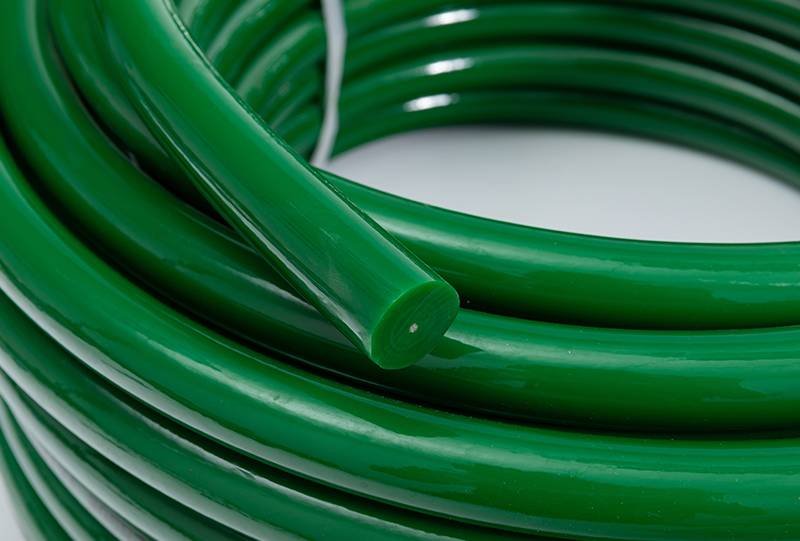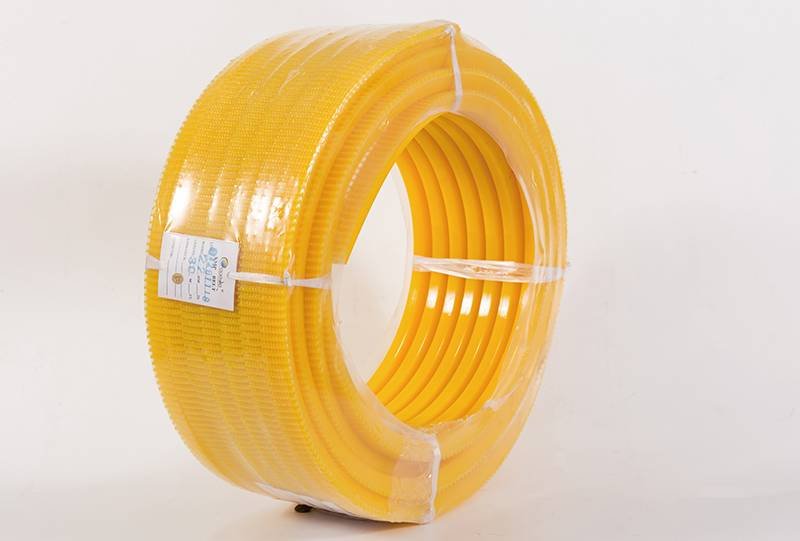The food and beverage industry operates under stringent standards to ensure hygiene, safety, and efficiency at every stage of production. From raw material handling to packaging, conveyor belts are an essential component of these processes. TPU (Thermoplastic Polyurethane) belts have become a popular choice in this sector, offering a cleaner, safer, and more durable alternative to traditional rubber and PVC belts. In this article, we will explore how TPU belts are revolutionizing the food and beverage industry by enhancing sanitation, safety, and efficiency in food processing and packaging systems.
What Are TPU Belts?
TPU belts are made from thermoplastic polyurethane, a high-performance material known for its flexibility, abrasion resistance, chemical resistance, and durability. Unlike traditional materials like rubber or PVC, TPU belts offer superior hygienic properties, which are crucial for industries like food processing and beverage packaging, where contamination risks must be minimized. Additionally, TPU belts maintain their performance over time and can withstand challenging operational conditions, making them ideal for high-volume production lines in the food and beverage industry.

Advantages of TPU Belts in Food and Beverage Industries
1. Superior Hygiene and Cleanability
In the food and beverage industry, hygiene is paramount. TPU belts are non-porous, which means they do not harbor bacteria, molds, or other contaminants that can pose risks to food safety. Their smooth surface is easy to clean and sanitize, making them an ideal choice for environments where cleanliness is essential. This is particularly important in food processing plants, where belts often come into direct contact with food products. With TPU belts, companies can ensure compliance with HACCP (Hazard Analysis Critical Control Points) and FDA (Food and Drug Administration) regulations for food safety.
2. Resistance to Oils, Fats, and Chemicals
Food production often involves oils, fats, sugars, and various chemicals, which can degrade traditional rubber belts. However, TPU belts are highly resistant to oils, fats, and chemicals typically found in the food and beverage industry. Whether you’re processing bakery products, meat, dairy, or beverages, TPU belts maintain their integrity and flexibility even when exposed to grease, chemicals, and food residues. This chemical resistance reduces the risk of contamination and helps extend the lifespan of the conveyor belt.
3. Durability and Long Service Life
TPU belts are known for their exceptional durability and abrasion resistance, making them perfect for high-traffic food production lines. These belts can endure the constant movement, friction, and heavy loads that are common in the food and beverage industry without suffering from wear and tear. The long service life of TPU belts translates to cost savings as companies spend less on replacements and maintenance. Additionally, the low friction properties of TPU belts help reduce energy consumption, leading to more efficient and sustainable production.
4. Temperature Resistance
Many food production processes involve extreme temperatures, such as baking, freezing, or refrigeration. TPU belts are capable of withstanding both high and low temperatures, ensuring their reliability in a variety of processing conditions. Whether your operations involve baking goods at high temperatures or transporting frozen foods, TPU belts can handle the temperature fluctuations without becoming brittle or losing their strength. This temperature resistance ensures consistent performance even in extreme conditions, providing uninterrupted operations.
5. Compliance with Food Safety Standards
In the food and beverage industry, compliance with food safety regulations is non-negotiable. TPU belts are FDA-approved for use in food contact applications, making them a safe and compliant choice for food processing and packaging systems. Their non-toxic and non-contaminating properties ensure that food products are safe from chemical leaching or degradation, meeting both local and international food safety standards. This compliance gives businesses peace of mind, knowing their conveyor systems are fully up to code.
6. Quiet and Smooth Operation
In food and beverage production lines, noise levels can be a concern, especially in large factories. TPU belts operate more silently than traditional rubber belts due to their smooth surface and flexible design. This noise reduction creates a more comfortable work environment, reducing the risk of hearing damage for workers and improving the overall working conditions in the factory.
7. Sustainability and Eco-Friendliness
Sustainability is becoming a key focus in the food and beverage sector. TPU belts are recyclable, which makes them a more eco-friendly option compared to other materials like PVC. Additionally, the durability of TPU belts reduces the frequency of replacements, which helps reduce overall waste. Companies seeking to improve their environmental footprint can rely on TPU belts for a greener, more sustainable solution.

Common Applications of TPU Belts in Food and Beverage Industries
1. Food Processing
In food processing, TPU belts are used for conveying raw materials, prepared ingredients, and finished products. Their cleanability, chemical resistance, and durability make them ideal for use in environments where food is processed, packaged, and transported.
2. Bakery Production Lines
For bakeries, TPU belts are used to transport dough, bread, pastries, and other baked goods. The non-stick properties of TPU belts ensure that dough doesn’t stick to the belt, allowing for smooth, efficient transport without compromising the quality of the products.
3. Meat and Poultry Processing
TPU belts are widely used in meat and poultry processing due to their ability to handle the harsh conditions found in these environments. They resist oils and greases typically present in meat processing plants, maintaining their hygienic properties and flexibility under the demanding conditions of these facilities.
4. Beverage Production and Packaging
Whether it’s bottling, canning, or packaging beverages, TPU belts are used to move containers and products through production lines. Their smooth operation, chemical resistance, and long lifespan make them ideal for environments where constant contact with beverages and containers occurs.
5. Fruit and Vegetable Processing
For fruit and vegetable processing, TPU belts are employed to carry delicate produce through washing, cutting, and packaging stations. Their gentle handling ensures that produce stays intact and free from contamination, while their resistance to water and cleaning agents helps maintain cleanliness throughout the process.

Conclusion
In the food and beverage industry, where cleanliness, safety, and efficiency are crucial, TPU belts offer a cleaner, safer, and more durable solution for conveying products through production lines. From their resistance to oils, fats, and chemicals, to their FDA approval and exceptional durability, TPU belts provide significant benefits for food processors, packagers, and manufacturers. By incorporating TPU belts into your food production systems, you can improve food safety, operational efficiency, and cost-effectiveness.
At PENGDE NEW MATERIAL TECHNOLOGY CO., LTD, we offer a wide range of TPU belts designed to meet the specific needs of the food and beverage industry. Our high-performance TPU belts are designed for maximum durability and hygiene, helping your production line stay efficient and compliant with industry standards. For more information, feel free to contact us at pengde2@pengde-pu.com.


